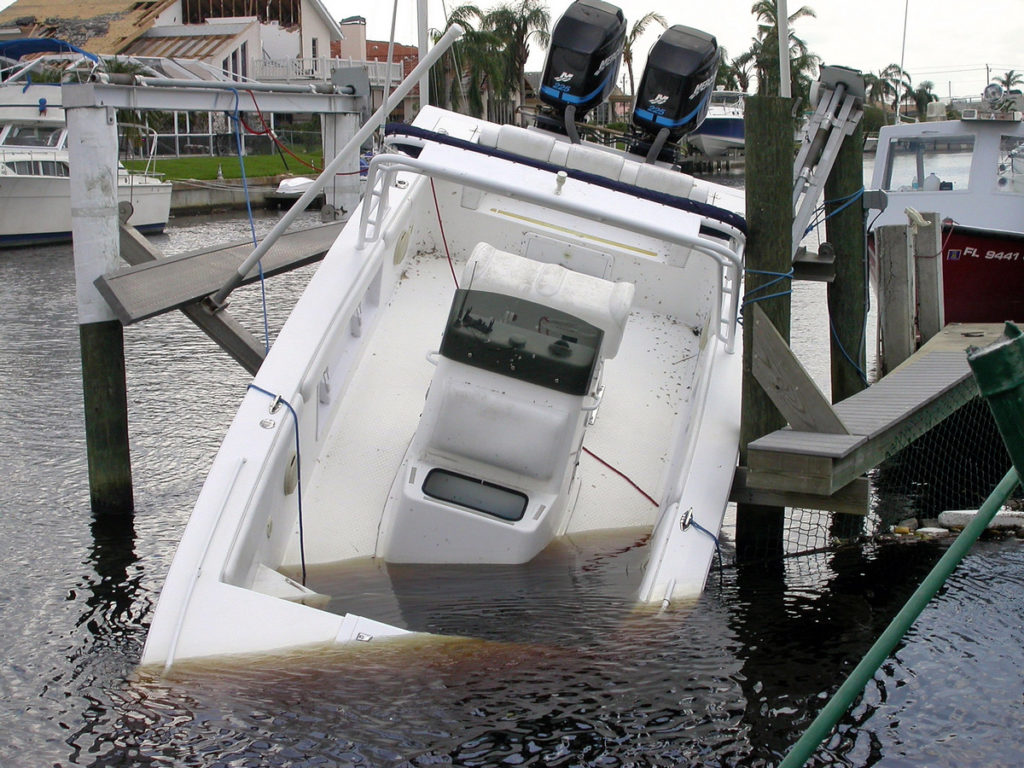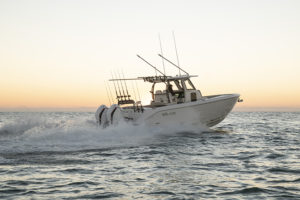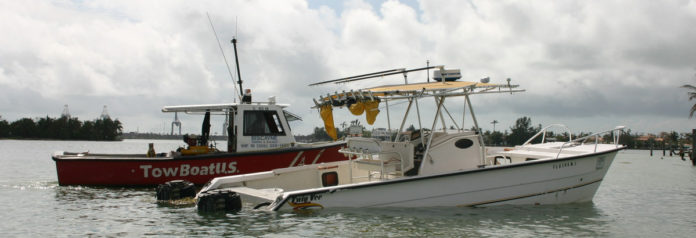Unless you live in a state with year-around boating weather, most boaters are counting the days until the temperatures are consistently above freezing. That’s when the boat comes out of storage and carefree days on the water soon await.
It’s also the perfect time to review the marine insurance policy and on-water towing coverage. The insurance policy you bought a few years ago with the new boat may no longer offer the right coverage. Insurance experts encourage consumers to review their policy yearly and look at the fine print. What once was covered may now be excluded or capped on how much the insurer will pay.
When reviewing a boat insurance policy, here’s where to focus:
CHANGING COVERAGES
A few months after Kelly Stevens had used a bonus to upgrade the electronics on his boat, thieves had stripped the Garmin screens and high-end stereo system from the console. When Stevens went to file a claim, he quickly learned that he was woefully underinsured because Stevens didn’t tell his insurance company about the expensive upgrades.

“We don’t know what people don’t tell us,” said Becky Reinaker, assistant vice president of underwriting for GEICO. “Every year we’ll send out a renewal and we ask that you review it … if you need to add any additional coverages such as fishing equipment, boarding equipment, things that you may have added. We ask that you do that, especially at renewal time.”
When deciding whether to increase policy limits, it’s best to meet with a broker and review your situation. Has your financial worth increased? What upgrades have you made to the boat? Have you changed where you boat? These are basic questions the broker will ask in determining the amount of insurance a boater may need.
Reinaker suggests that boaters consider an umbrella policy, which covers any liability beyond the limits on boat, auto and homeowner policies. Umbrella policies are affordable, especially for higher levels of $1 million or $2 million.
DOWN WITH THE SHIP
Having a boat sink ranks as one of the worst days for a mariner. If the boat isn’t properly insured, it can also be a very expensive day.
Most boaters think about getting the boat replaced but overlook the costs of getting the boat off the bottom of the ocean or a marina slip. Often those costs are deducted from the final check for a replacement boat.
“(Insurance companies) are going to pay for the boat but now the boat is in three pieces at the bottom of the bay, back in the bayou,” said Scott Croft, vice president of public affairs for BoatUS. “It may require a crane, may require technical assistance, may be very expensive. And that boat can’t sit there and it’s your responsibility to remove it.”
Croft said boat owners should look for boat policies that offer full salvage coverage. “If the boat is insured for an insured value of $40,000, you should have another $40,000 for salvage and wreck removal of that boat,” he said. “It can be very expensive to remove some vessels.”
State and federal agencies often seek recovery costs for responding to a sinking, especially if there is fuel cleanup involved.
BE HONEST
Nobody likes a liar, especially an insurance company that could potentially be paying out a major claim. Using a boat when the insurer thinks it’s laid up is a big no-no, and any incident won’t be covered.
The same goes for misleading the insurer on where a boat is being stored. Insurance companies factor in weather, especially in states that are prone to hurricanes. “Let’s be honest, some storms hit more states than others, so rates are generally affected by that activity,” Croft said.
GEICO’s Reinaker said insurers will require a plan to get a boat out of an area in the event of a major storm. Boats in dry storage and marinas are generally not covered by the business’s insurance.
“Having it properly prepared, knowing when the storms are coming,” Reinaker said. “If you’re not going to be near your boat, having somebody that is responsible to help secure that boat in the event of a storm.” Take plenty of photographs of your boat, especially the helm and any add-on equipment. In the event you need to file a claim, photographs will help make the process go smoothly.
WAYS TO SAVE
There’s no way around it, boat insurance premiums can be expensive, especially if it’s a high-end center console. There are a few ways to save a few dollars off your boat insurance costs.
If it’s been a few years, take a boater education course through the local U.S. Power Squadrons to earn a small discount. A good driving record—on and off the water—will keep premiums in check.
Boaters might also consider raising the deductible, which will lower the premium. It will mean more money out of pocket but if you’ve had a good track record, it’s something worth considering.
If you live in a region where it’s too cold to boat during the winter, insurers offer discounts for winter layup. During the layup there is no on-water coverage, so don’t think about taking the boat out unless you let the insurance company know first.
Ultimately where the boater lives, type of boat and their experience will determine the premium for boat insurance.
“Insurance companies are going to look for experience but also the responsibility level,” Reinaker said. “How many years has somebody owned and operated a boat? Has there been any losses in the past? Where’s the boat located, that plays a big factor.”
NEED TO HAVE
More insurers are now offering towing coverage with their policies and that’s a smart bet, Croft said. A 20-mile tow at sea can easily top $3,000 without the insurance or a plan through SeaTow or TowBoatUS.
“If you don’t check your policy every year or pay attention to what your insurance company is offering you, you may lose out,” Croft said. “For us specifically, you can get on-water towing at a much less expensive rate than if you, say, buy our unlimited towing plan directly through TowBoatUS. The reason is because when you add on-water towing to a policy it only covers that boat, that’s the big difference.”
Croft also recommends that boaters consider adding consequential damage coverage to their policy. It covers a loss that was the result of wear and tear such as mold or rot rather than an accident. Many insurance companies have clauses that require you maintain the boat. It’s good reason to save the maintenance records.
“We encourage everybody, check your policy, check your salvage, check consequential damage coverage, not everybody offers it,” Croft said. “It will be the difference between your boat sinking and you get paid and the guy next to you having a different policy that doesn’t have it and he won’t. It happens all the time.”
When spring rolls around and it’s time to get the boat ready, make sure to check out the insurance policy too. Good insurance coverage will provide peace of mind on and off the water.



